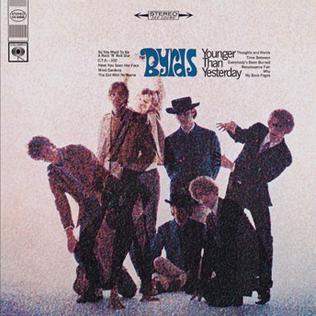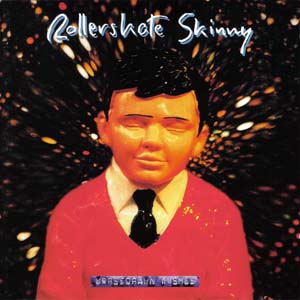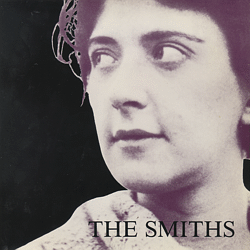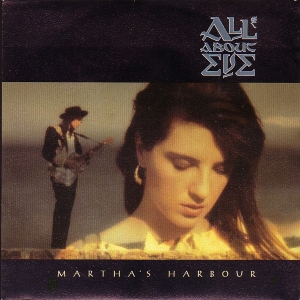Stephen Anthony James Duffy is an English musician, singer, and songwriter. He was a founding member, vocalist, bassist, and then drummer of Duran Duran. He went on to record as a solo performer under several different names, and is the singer and songwriter for The Lilac Time with his older brother Nick. He has also co-written with Robbie Williams and Steven Page.
The Devils is the name of an English electronic pop band, formed by Nick Rhodes and Stephen Duffy.

The Choirboys is an Australian hard rock and Australian pub rock band from Sydney formed as Choirboys in 1979 with mainstays Mark Gable on lead vocals, Ian Hulme on bass guitar, Brad Carr on lead guitar and Lindsay Tebbutt on drums. In preparation for their second album Big Bad Noise in 1988, the band changed their name to The Choirboys. The band line-up saw many changes from 1983 to 2007, while releasing 8 studio albums. Their 1987 single "Run to Paradise" remains their biggest commercial success.
Felt were an English jangle pop band, formed in 1979 in Water Orton, England, and led by the mononymous Lawrence. They were active for ten years through the 1980s, releasing ten singles and ten albums. The band's name was inspired by Tom Verlaine's emphasis of the word "felt" in the Television song "Venus".
The Lilac Time is a British alternative folk-rock band, originally formed in Herefordshire, England by Stephen Duffy, his brother Nick Duffy and their friend Michael Weston in 1986. The band's name was taken from a line in the Nick Drake song "River Man".

Younger Than Yesterday is the fourth studio album by the American rock band the Byrds and was released on February 6, 1967 on Columbia Records. It saw the band continuing to integrate elements of psychedelia and jazz into their music, a process they had begun on their previous album, Fifth Dimension. In addition, the album captured the band and record producer Gary Usher experimenting with new musical textures, including brass instruments, reverse tape effects and an electronic oscillator.
Dalek I Love You were a synthpop group from the Wirral, England. At various points in their existence, the band was also known as Dalek I. Record executives at Phonogram shortened the band's name without telling them for the "Freedom Fighters" single.

Horsedrawn Wishes is the second and final studio album by the Irish indie rock band Rollerskate Skinny, released on 26 February 1996 on Warner Bros. Records. It was recorded at STS Studios in Dublin, Ireland, mixed at Parr Street Studios in Liverpool, United Kingdom and mastered at Metropolis Studios in London. "Speed to My Side" was released as a single in 1996. The album artwork was designed by noted Dublin designer Andy McCormack with a striking design that stood alone as a great art piece and only cemented the relationship between the music and the striking imagery.

"Girlfriend in a Coma" is a song by the English rock band the Smiths, written by singer Morrissey and guitarist Johnny Marr. It was the first of three UK singles from the band's fourth and final studio album, Strangeways, Here We Come. Inspired by the song "To Be Young, Gifted and Black", "Girlfriend in a Coma" features a lilting acoustic guitar line performed by Marr and lyrics about a hospital-bound lover sung by Morrissey.

The Sound of Girls Aloud: The Greatest Hits is the first greatest hits album of British girl group Girls Aloud. It was first released in the United Kingdom through a limited edition on 23 October 2006, while the standard version was released on 30 October 2006. The Sound of Girls Aloud features twelve of the group's singles, two of which reached number one in the UK. The album features three new tracks, with "Something Kinda Ooooh" and "I Think We're Alone Now" being released as singles and peaking inside the top five on the UK Singles Chart.

"Jerks of Attention" is a song by Australian alternative rock band, Jebediah, recorded in August 1996, in Melbourne at the Birdland Studio, and produced by Lindsay Gravina and Mikey Alonso. "Jerks of Attention" was released on 8 December 1996 as the band's debut single and peaked at No. 62 on the ARIA Singles Chart. "Jerks of Attention" was re-recorded and included on the band's debut album, Slightly Odway (1997).
Nicholas John Duffy is an English musician, artist, illustrator, and filmmaker.

Get Fired is the debut album by the Chicago-based pop punk band the Smoking Popes, released in 1993 by Johann's Face Records. It was recorded in 1993 at Sonic Iguana Studios in Lafayette, Indiana with recording engineer Mass Giorgini. The raw production and punk rock sound of the album are in contrast to the higher production values and more pop-leaning sound of the band's later works.

"Martha's Harbour" is a song by English rock band All About Eve. The acoustic ballad reached No. 10 on the UK Singles Chart and helped the group's self-titled debut album reach No. 7 on the UK Albums Chart. The song features only Julianne Regan's voice, acoustic guitars played by Tim Bricheno, and sound effects of ocean waves.
Cara Tivey is an English pianist/keyboardist and vocalist who has mainly worked as a side musician. She is best known for her collaborations with Billy Bragg. Tivey is also the cousin of Stephen and Nick Duffy of The Lilac Time.
The Impossible Dreamers were a 1980s new-wave band that had a major club hit with their 12" single "Spin", before signing for RCA Records, where they were produced by Johnny Marr. The Imps started off as several friends at Exeter University (c1980). By the time of their first RCA single, "This House Built On Sand", the band were: Nick Waterhouse /Caroline Radcliffe /Justin Adams (gtr)/Fred Hood (drums). The band toured extensively, and were courted by the NME and many other magazines.

Truckload Of Trouble is a compilation album by The Pastels, released in 1993. The album compiles songs from their EPs and singles released between 1986 and 1993, with some popular album tracks. Included are well known songs such as "Comin' Through", "Nothing to be Done", "Truck Train Tractor", "Crawl Babies", "Speeding Motorcycle" and "Baby Honey".

"Circus Left Town", also known as "Circus" is a ballad written by the British recording artist Eric Clapton. The rock musician wrote the song about the last night he spent with his then four-year-old son Conor. Although Clapton played and recorded the song for his 1992 million seller live album Unplugged, he decided to release the title six years later as a re-recording for both his 1998 effort Pilgrim and as a single release. However, Clapton played the song live for his 1992 Eric Clapton World Tour, before it came out on any recording formats.

The Lilac Time is the debut album by English band the Lilac Time and was released in 1987 by Swordfish Records. The album was partially remixed and re-released by Fontana Records in 1988.

& Love for All is the third album by English band the Lilac Time and was released by Fontana Records in 1990. It saw the band move away from the folk pop sound of their first two albums towards an electric guitar and keyboard heavy sound indebted to 60's pop and psychedelia.












